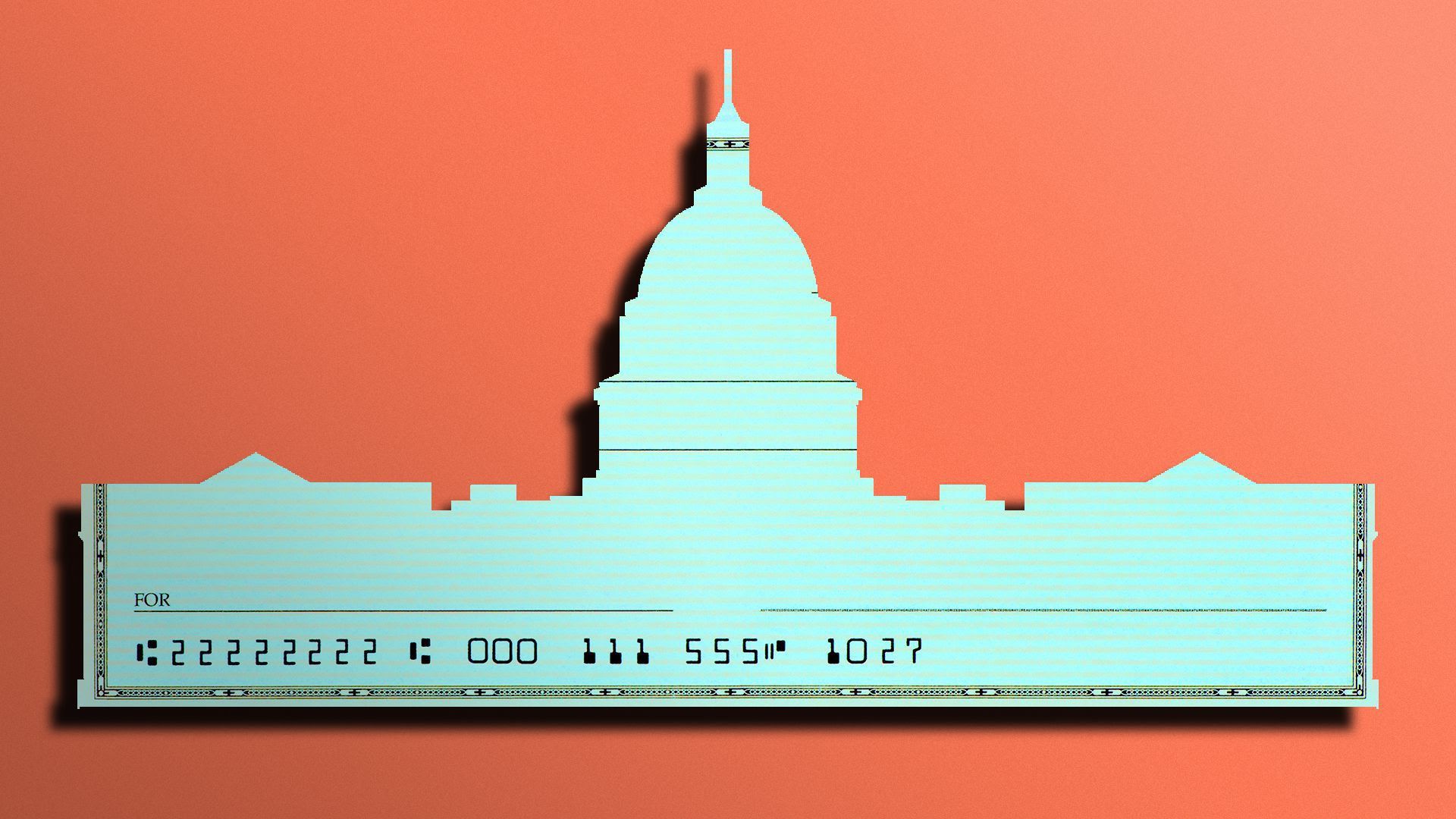SPACs go to Congress
Add Axios as your preferred source to
see more of our stories on Google.

Illustration: Annelise Capossela/Axios
House lawmakers targeted SPACs during a hearing today following a year of unprecedented deal activity.
Why it matters: Congress may decide to draft new legislation that would take away one of the advantages of going public through SPACs versus a traditional IPO — the ability to make forward-looking statements.
- The SEC has signaled it could do the same.
What they're saying: Stephen Deane of the CFA Institute testified that the safe harbor rule governing what you can say about the future is a “singular regulatory advantage” that SPACs have over IPOs.
- Andrew Park of Americans for Financial Reform also testified that because SPACs are not subject to the same liabilities for making false and misleading forward-looking statements, the method has “emboldened” pre-revenue companies (electric vehicles, cryptocurrency, space exploration) to make “what might generously be called very rosy projections.”
- “What’s most concerning is that retail investors are buying into this kind of hype,” Park added.
By the numbers: The witnesses cited how much SPACs have underperformed their peers or the broad market.
- Park pointed to a Goldman Sachs index of 200 SPACs that saw average losses of -17% compared to a 10% return in the S&P 500 this year.
- Deane noted that for every year since 2010, the one-year post-merger performance of SPACs has underperformed the Russell 2000 by 10% or worse.
The big picture: Congress is concerned about protecting retail investors, a theme that has been present since the meme stock trades earlier this year.
What to watch: Even with the growing scrutiny, SPACs aren’t dead. They’ve just been slower coming to market given the existing backlog of reviews.
